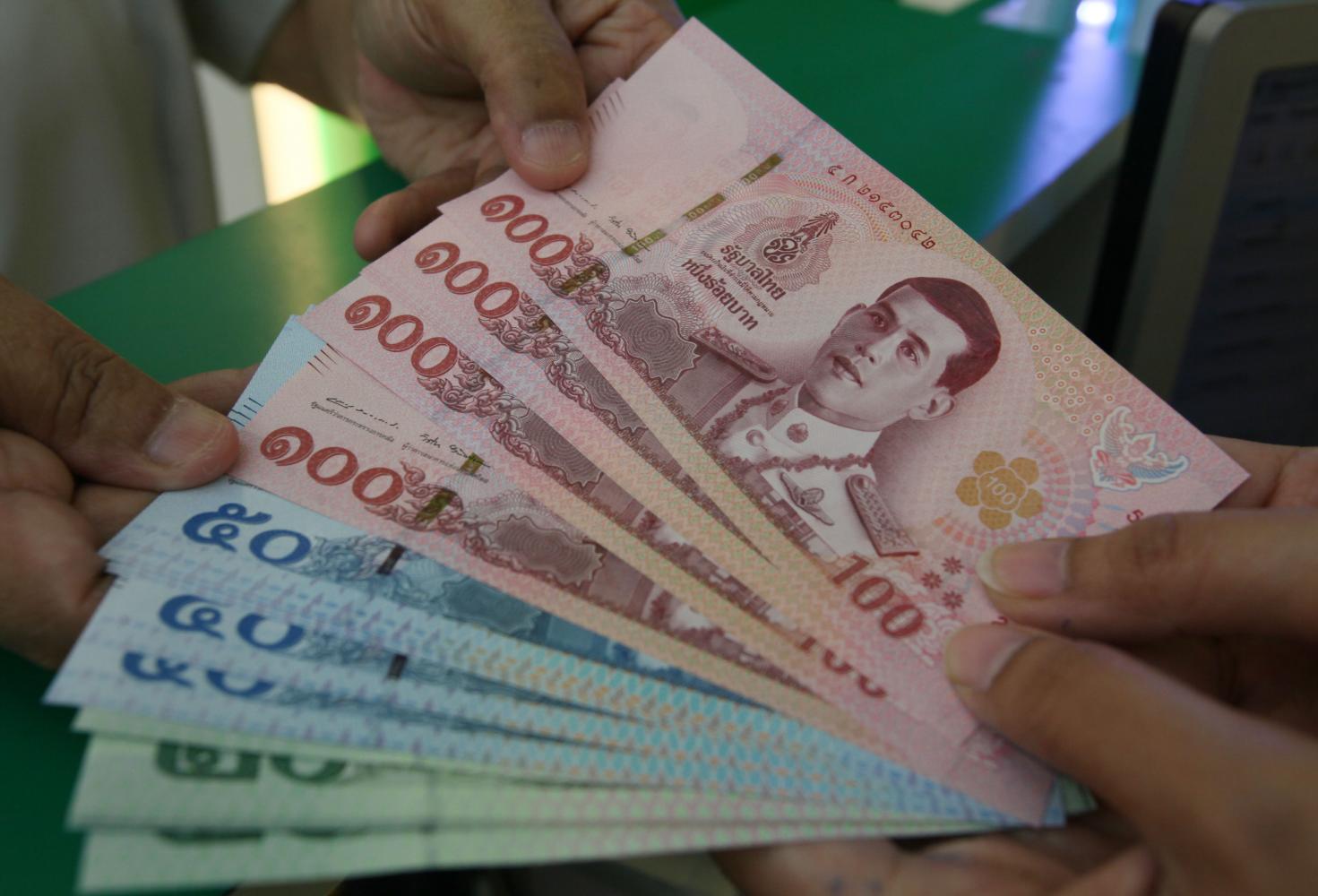
Baht speculation has been declining after the central bank's recent measures to manage local currency movement and a policy rate cut, says the Bank of Thailand.
Foreign portfolio investment registered net outflows over the past few months, in line with lower Thai government bond yields.
Offshore net outflows in debt securities were registered at US$655 and $829 million (20 billion and 25.4 billion baht) in July and August, respectively, according to Bank of Thailand data. Year-to-date outflows in debt security investment were logged at $1 billion.
The central bank's measure to taper its bond issuance has slowed speculative behaviour from offshore investors, said governor Veerathai Santiprabhob.
The Bank of Thailand started to rein in short-term offshore inflows by reducing its new short-term bond supply in July. It then stepped up efforts by lowering the cap on the outstanding balance of non-resident accounts from 300 million baht per person to 200 million baht and requiring a report with the names of end beneficiaries for all non-resident holding of Thai debt securities.
Moreover, an easing monetary policy across the globe, led by key economies such as the US Federal Reserve and the European Central Bank, led the Bank of Thailand to also cut its policy rate by 25 basis points in August, lowering Thai bond yields.
Thailand's government bond yield for 15-year maturity is quoted at 1.5%, in line the central bank's policy interest rate at 1.5%, and is close to long-term US Treasury yields.
Policymakers will closely monitor economic circumstances both globally and locally and use monetary policy properly based on a data-dependent approach, said Mr Veerathai.
Despite the central bank's 25-basis-point rate cut in August, the baht has remained firm against the dollar. The local currency has appreciated higher and faster than its peers.
The baht is Asia's best performing currency against the greenback, gaining 6.44% year-to-date, according to Reuters.
"The Bank of Thailand has been closely monitoring the situation and we are ready to use existing measures in managing the local currency," he said.
Mr Veerathai said the country's current account surplus worth in excess of $25.1 billion during the first eight months was a major factor contributing to the strong baht.
Thailand's current account surplus mainly derives from a deceleration of capital goods imports. Positive growth of inbound tourism income and foreign direct investments have also contributed to the country's huge current account surplus.
Volatility recurring in the money and capital markets across the world is a result of external factors, particularly the Fed's policy rate movement and geopolitical tensions, he said.
The Bank of Thailand's Monetary Policy Committee last week decided to slash the country's GDP growth outlook to 2.8% from 3.3%, mainly because of lower external demand for exports.
The US-China trade dispute has been protracted, a drag on Thai shipments and domestic economic growth.
"This year's 2.8% growth forecast is lower than last year, but no signs lead to an economic crisis yet," said Mr Veerathai.
The 2.8% forecast factored in the government's economic stimulus package for boosting domestic spending.
Separately, the central bank has discussed with financial institutions their zero-interest instalment campaigns, especially the zero rate for credit cards targeted towards vulnerable groups, such as first-time workers. The bank is worried about spending for inessential purposes building up debt.
Under a memorandum of understanding between the central bank and financial institutions on responsible lending, banks will consider borrowers' debt-servicing ability, their cash holding after debt repayment and credit risk profiles, all of which have an impact on non-performing loans and the country's household debt.
"Some financial institutions still offer loans to vulnerable borrowers despite their lower ability to repay debt. In the case of debt default, borrowers are charged penalty fees at an excessively high rate to compensate for the zero-rate credit cards," said Mr Veerathai.